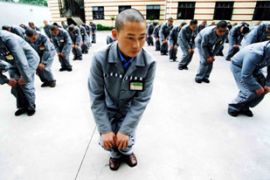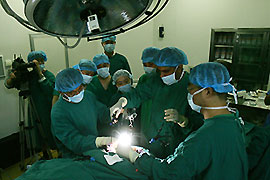China bans human organ trade
New rules include criminalising of organ harvesting without prior consent.

Big demand
However, the new rules, which came into force on Tuesday, do not apply to transplants of human tissue such as cells, corneas or bone marrow.
International human rights groups have long accused China of harvesting organs from executed prisoners for transplant, sometimes to paying recipients, without the consent of the prisoner or his or her family.
 |
| China faces a huge gap between organ supply and demand [GALLO/GETTY] |
Hospitals have also allegedly harvested organs from road accident victims and other dead patients secretly without the knowledge of the family members.
The government has denied the charges saying most organs are voluntarily donated by ordinary people and executed criminals with prior consent.
China is the world’s second largest performer of transplants after the US, with about 5,000 operations annually.
In recent years foreign patients facing a shortage of compatible organs in their home countries have flocked to China for transplant operations.
But the country faces a huge gap in the supply and demand.
About 1.5 million patients need organ transplants each year but only 10,000 can find organs, according to statistics from the health ministry.
According to officials the new laws make it a crime to harvest human organs without consent or free will.
It also regulates procedures to prevent potential human rights abuses, requiring every transplant to be vetted by an ethics committee set up in the medical institution.
Disabled-friendly
The new transplant laws were introduced alongside a new set of regulations to promote employment opportunities for China‘s 83 million disabled people, which also took effect on Tuesday Xinhua said.
Issued in February, the regulations require that disabled people make up no less than 1.5 per cent of the government workforce, and are given equal treatment in promotions, salaries and social insurance.
Employers of disabled people will enjoy preferential taxation and other benefits including small business loans, according to the regulations.
Statistics show there are about 83 million disabled Chinese, of which only 23 million are employed.